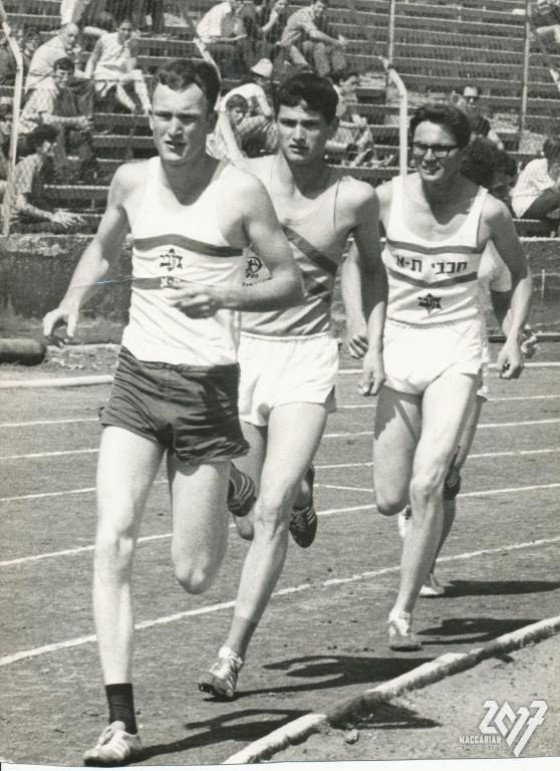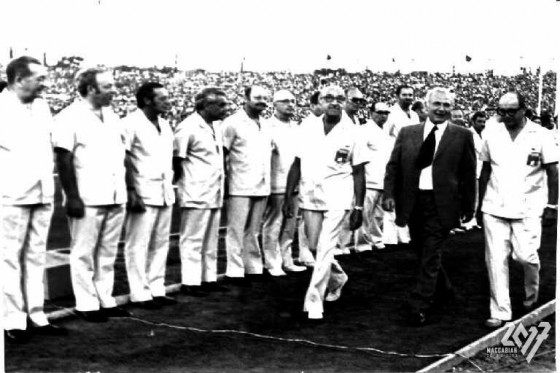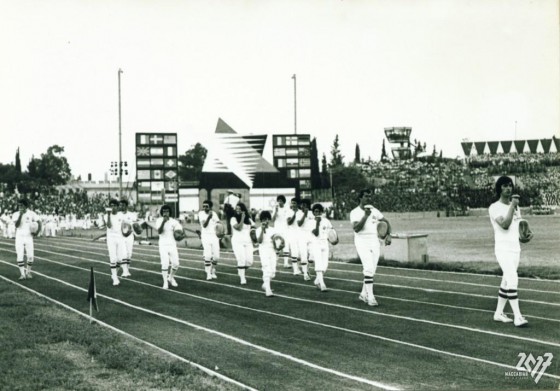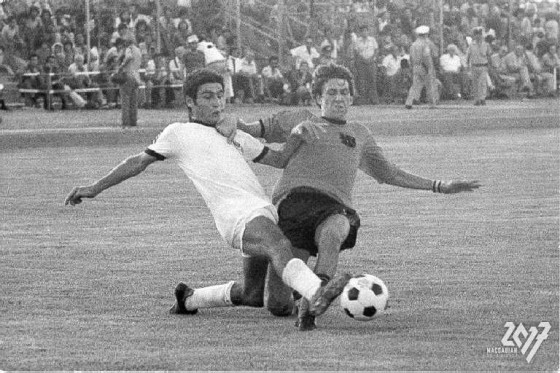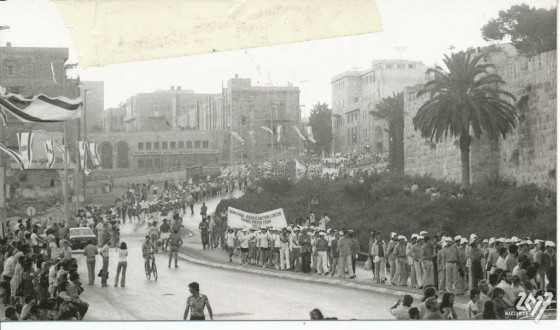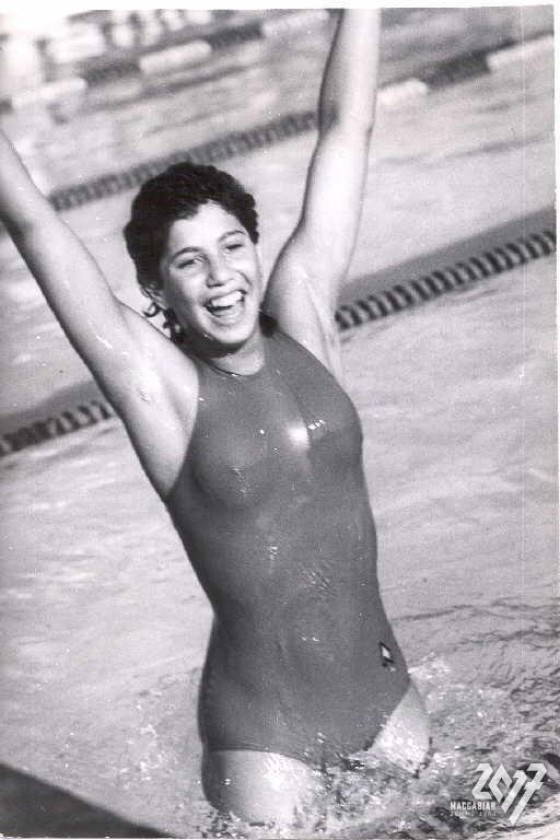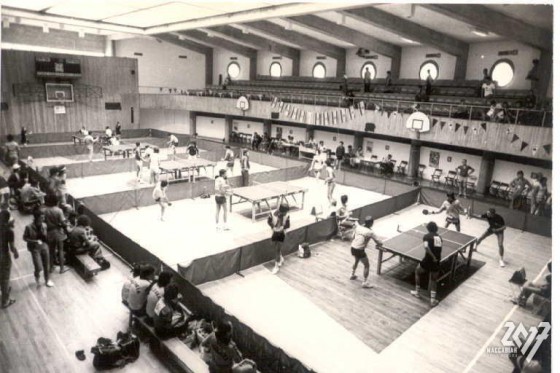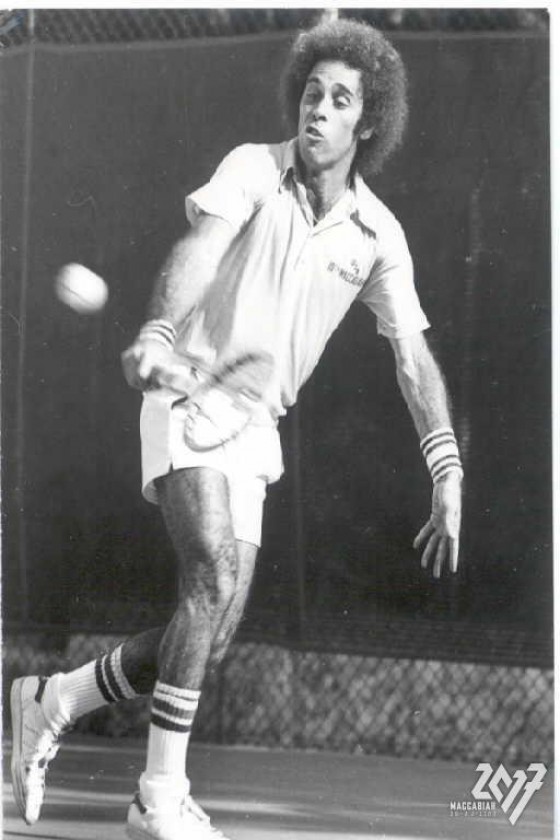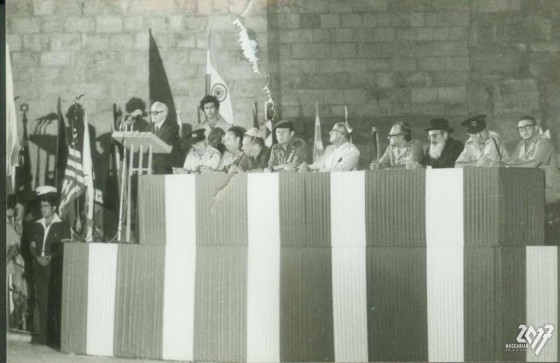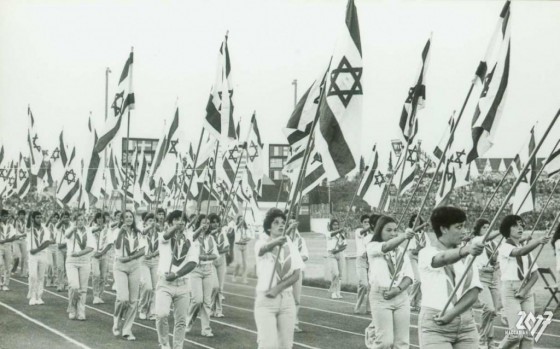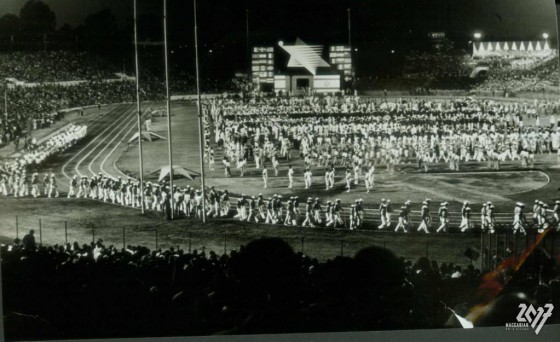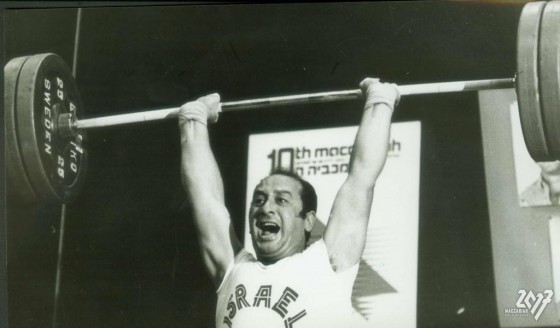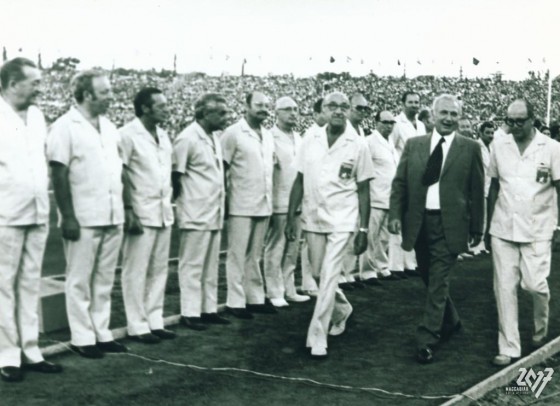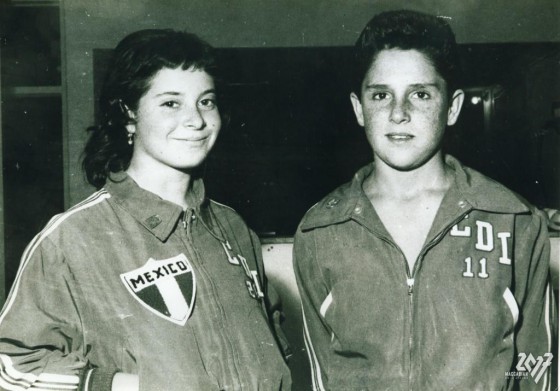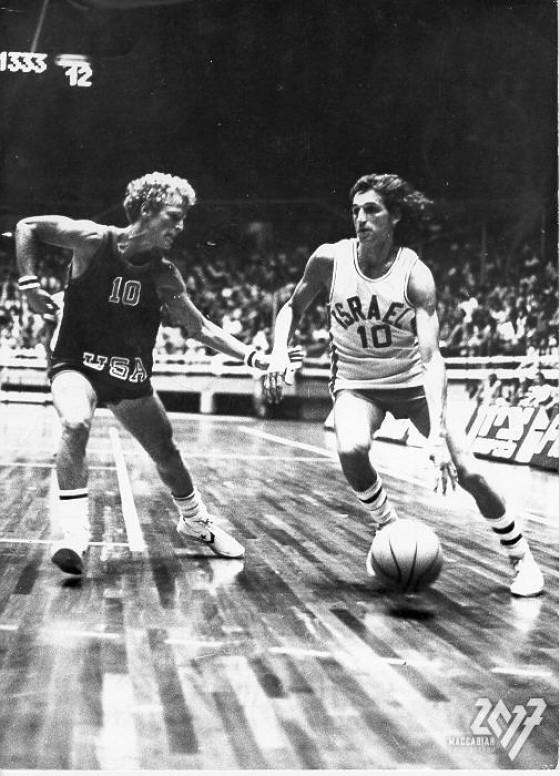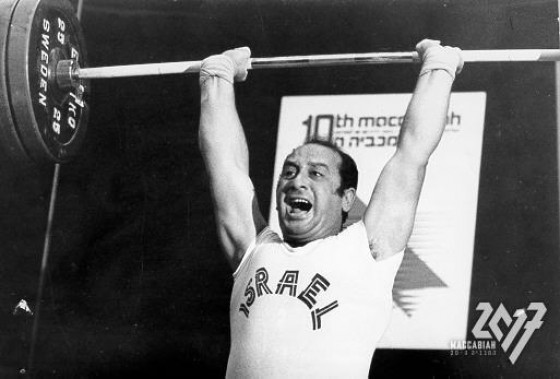The Tenth Maccabiah: 5737
The Tenth Maccabiah was held in July 1977, during an unusually hot summer. It was on the eve of a political upheaval which had begun when the ׂright׃ headed by Menachem Begin assumed power and Egyptian President Anwar Sadat came to Jerusalem. The State of Israel had ׂscored points׃ with the world media a year after the Entebbe rescue with Rina Mors coronation as Miss Universe and Maccabi Tel Avivs unforgettable capture of the European Basketball Championship Trophy in a one point victory in the playoffs (78:77).
Almost double the usual number participated in the Tenth Maccabiah -- 2,700 athletes from 34 countries, including Norway, Japan, the Virgin Islands, Jamaica, Equador and even one track and field competitor from Bolivia. The number of events was increased to 28, including badminton, karate, mini football and even bridge and chess, games not usually played in the regions. (In comparison the Seoul Olympics of1988 included only 23 events.) Bicycle riding competitions were eliminated from the list once and for all.
In the presence of the President of the State of Israel and Yitzchak Rabin, Prime Minister, 50,000 spectators viewed the impressive processional of delegations. The first members, the founding generation of Maccabeans, marched in a separate group. The Opening Ceremony concluded with a spectacular demonstration of free-style parachuting.
The competitions were held all over the country. Highest achievements were in soccer, swimming, tennis, table tennis, gymnastics and weight lifting. No less than 55 Maccabiah records were broken this time, among them, most of Mark Spitzs. Israel led in all team sports except basketball where they were beaten in the final playoffs against the United States (91:92). The Americans were the unrivalled champions in the pool. In track and field, however, the Australian athletes were able to successfully challenge them. Tennis claimed the crown (as the most popular sport) with 18 countries participating in the regular tournament and ten in the Masters (for players over 45). Gymnastics aroused particular interest as, in addition to the competitors, groups of foreign gymnasts from Denmark, France, Germany and Holland put on special performances. The athletes competed in new facilities such as the Olympic pool recently built at Tel Aviv Unviersity. Tennis competitions were held in Afeka, gymnastics in the Haifa Sports Palace and other competitions in Kibbutz sports facilities.
Among the large number of athletes, particularly outstanding were: K. Kering who set a new decathlon record (6859 points); the American swimmer Wendy Weinberg winner of the Bronze Medal for the 800 meter freestyle at the Montreal Olympics; veteran Canadian sprinter Abigail Hoffman, among the best in the world in the 800 meter race; the Venezuelan Elizabeth Popper, Carribean table tennis champion; Ivan Katz, Australian weightlifting champion; and Ernie Greenfield, a member of the United States all-star basketball team that won the Gold Medal in the Montreal Olympics.
Great Britain put together a Maccabiah all-star team of outstanding soccer players, among them Ricky George who later played professionally for Hartford United. Among the outstanding Israeli athletes were: swimmer Anat Farkash who won 2 Gold Medals for the 100 and 200 meter breast stroke; track and field stars Mira Bolova, Diane Hoopert and Esther Shachamorov who dominated in track events (3 Gold Medals for Shachamorov); Israeli born Mickey Berkovitz, the hope of basketball fans and outstanding on the court, alongside his comrades Motti Aroesti, Barry Leibowitz, Steven Kaplan and Pini Chozaz.
The budget for the Tenth Maccabiah was 16-1/2 million Israeli pounds. Public institutions contributed 700,000 Israeli pounds and 100,000 pounds were raised from commercial advertisements in journals. Tickets brought in another 2,645,000 Israeli pounds, the price of admission varying from 50 to 75 Israeli pounds. Most of the tickets were sold for the basketball games, swimming events, the Opening Ceremony and the closing game. The organizers were left with a deficit of 870,000 Israeli pounds.
At this Maccabiah great emphasis was placed upon the social and nationalist aspects of this mass event. Hence, in addition to the sports events, the organizers planned social gatherings, meetings, gala performances and tours. Of note was the reunion of athletes from all over the world who had competed in the First Maccabiah, including General Res. Avigdor Ben Gal, Nicky Hershel and Yitzchak Hirschler. Immediately preceding the Games the organizers gave two professional courses aimed at familiarizing judges and coaches from Israel and the Diaspora with international sports rules and regulations. Another first was the childrens art
exhibit which entries from 21 countries. During the Games international seminars on Sports Medicine, the History of Physical Education and Jewish Sports, were well attended.
The Tenth Maccabiah highlighted a most painful phenomenon which ran counter to the spirt of past Maccabiot. In contrast to those aliya Maccabiot, this time the delegations from the Diaspora contained a high percentage of yordim and children of yordim reflecting the general trend toward emigration which developed during the 70s. Needless to say, the Maccabiah organizers, as ever, did everything in their power to win the hearts of Diaspora youth for the Land of our Fathers.


